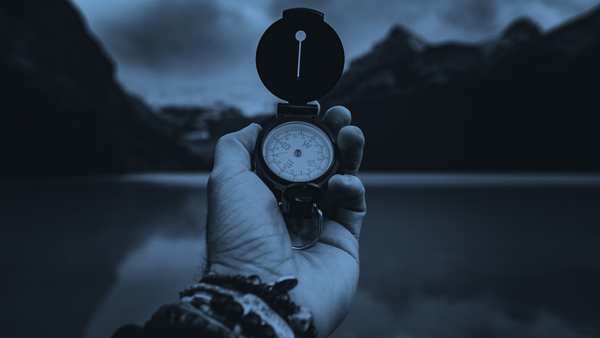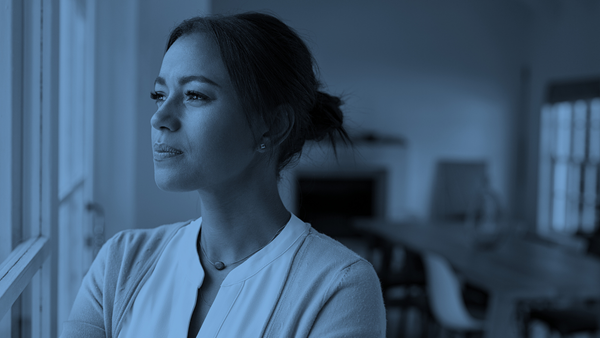Time for a break

WorkLifePsych News 012
It's that time of year again: the sun has made an appearance in the sky and our in-boxes are full of 'out of office' notifications as seemingly everyone takes a holiday.
Including me.
☀️ Time for a break
I'm writing this just before I turn on my own 'out of office' setting on my email account and head to Sitges for a week in the sun. It's time for my annual retreat, when I take time out to relax, review the past and plan for the future. I can honestly say it's where all my good ideas for the business come from and I always return to London with a notebook full of plans.
Taking breaks from work is crucial for our wellbeing. Whether it's the micro-break from sitting in front of a computer, the break to get some fresh air during a walk at lunchtime, or the break for days at a time while you take a holiday - they all contribute to helping us recuperate from the demands of our jobs. They allow for a pause and to reconnect with our values, our priorities and our authentic selves. Intentional disconnection from one role and connection with another can contribute to our sense of balance, purpose and meaning.
And when I take a retreat, I learn more about myself and gain from a more balanced reflection on the year gone by. This year's retreat will be a little difference as I review the longer term. It's hard to believe, but September will mark the tenth year since I founded WorkLifePsych. But more on that next month.
You don't need to jet off to somewhere sunny to have a personal retreat. I wrote about this on the blog on my way back from last years retreat in (you guessed it!) Sitges. You can do it from wherever. The key thing is to do it.
Whether or not you're taking holidays this month (and it seems like virtually everyone is!) I hope you can get some of this intentional disconnection and time to reflect. For me, it's priceless.
🎧 Wrapping up our PsychFlex focus
This week, I published the final episode in my podcast collaboration with the fantastic Ross McIntosh - he of 'People Soup' fame. Over eight episodes, we explored the concept of Acceptance and Commitment Theory (ACT) and each of its constituent skills that boost our psychological flexibility. You can find our series wrap-up, where we also respond to listener feedback and questions - below.
It's been great fun and a real learning experience to co-create this series with Ross. Running your own business can sometimes be a lonely mission, but my frequent chats and recording sessions with Ross have been just what I needed. And I know from listener feedback and podcast stats that it's gone down well with listeners too!
But our 'collab' isn't over.
Starting in November, I'll be launching a new departure for WorkLifePsych: a brand new blended learning course focusing on how to boost your wellbeing with Psychological Flexibility. Watch this space for the details and how to sign up. For now, I can promise it will include a mix of self-directed online learning and a series of interactive webinar sessions with Ross and I.
If our podcast series inspired you to work on your own psychological flexibility, then this course could be just what you need.
🧠 Turning to wellbeing in general
September sees a pivot to the topic of wellbeing more generally. As you'll see from the section below, my focus is going to be on examining the topic of workplace wellbeing through an evidence-based lens. Those of you with responsibility for employee wellbeing will know choosing how to invest your limited budget can be a real challenge. There are a lot of claims made, a lot of slick marketing and an equal absence of evidence for a lot of what ends up in your in-box.
Even if you don't have that professional responsibility, you've probably been on the receiving end of advice from influencers online about the 'perfect morning routine' or the 'magic of bi-phasic sleep'. Ugh. It's exhausting and not a little frustrating.
Until the end of 2024, the podcast, the YouTube channel, the blog and my online and in-person events are going to be about equipping you with the insight and skills to use the science to improve your own wellbeing and, if it's your role, start to make a difference in the workplace too.
We're going to be covering topics like breaks and rest, the role of leadership in wellbeing, navigating menopause, how to critically evaluate claims made about wellbeing, the importance of sleep and the role that social connections and relationships play. We'll also be looking at how to support employees who are working while living with chronic health conditions. You can check out the recording of this month's webinar to get a flavour of this.
If you have questions about wellbeing that you'd like us to answer on the podcast, just let me know. It's always fantastic to hear from readers/listeners and it helps me know that what I'm creating isn't disappearing into a void.
📆 Dates for your diary
To round off this month's newsletter, I have a couple of wellbeing-focused events to share with you.
On Wednesday 18th of September, I'm running an Evidence-based wellbeing event in Edinburgh. A collaboration with the team at World of Work, I'll be explaining what it means to be an evidence-based practitioner in the workplace and how HR and L&D professionals can ensure they build their wellbeing activities on the evidence - not just fashions and fads.
Attendees will leave with a solid understanding of evidence-based practice, clarity on the common workplace wellbeing pitfalls, and a plan for making wellbeing something that works at work.
👉🏻 You can reserve your place by visiting https://www.eventbrite.co.uk/e/workplace-wellbeing-what-works-tickets-913784382687
Then, on Thursday 24th of October, I'll be running a similar event, this time in London. Joined by Dr. Rachael Skews, we'll be exploring the essential elements of an evidence-based approach to wellbeing at work and helping attendees plan and execute robust and impactful wellbeing programmes. We'll also explain the difference wellbeing-focused coaching can make.
👉🏻 You can book your ticket here: https://worklifepsych.cademy.co.uk/wheretheevidence




